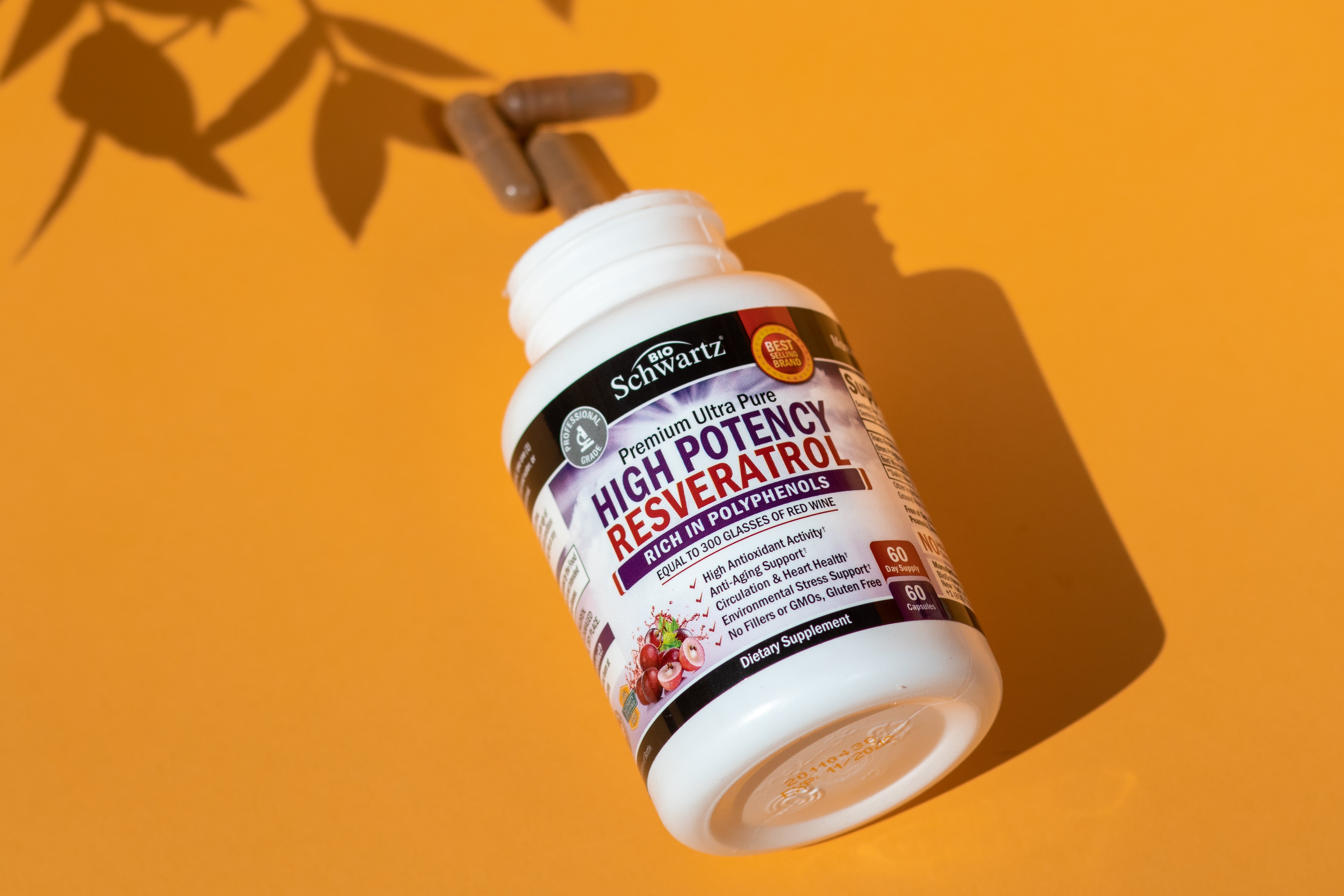Hormones can be described as natural chemical message-carriers in the human body, that trigger various bodily functions. In women, hormones play an essential role in regulating the reproductive system, as well as other essential processes. When found in optimal ratios, hormones can help maintain overall health, fitness, and well-being. While hormones such as serotonin and cortisol are common to both men and women, the sex hormones oestrogen and progesterone are specific to women.
Hormone production is not only influenced by external factors, but also by your mood and overall mental and physical health. When a person is happy or content for instance, the body generates "good hormones" such as oxytocin, dopamine, and serotonin. Oxytocin is believed to be linked with feelings of confidence and trust and might also promote the general well-being of women. According to recent findings, women who have experienced significant rises in oxytocin are more frequently happy and less stressed.
Hormones have a wide range of health implications for women. They aid in the management of body processes such as appetite, reproduction, sex drive, temperature control, etc. However, it is easy and normal for the hormonal levels to fluctuate in women, leading to both physical and mental ramifications. These fluctuations are mostly in sync with a woman’s menstrual cycle.
Considering the role hormones play in a woman’s body, it is important to know how to keep them happy and to maintain a hormonal balance in the body. Hormonal balance refers to having optimal levels of all the hormones in the body. Women must maintain a healthy balance between estrogen and progesterone because overall wellbeing and health will be jeopardized if there is too much or too little of either hormone. Moreover, decreased estrogen levels can also trigger hot flashes- a common occurrence during menopause. Oestrogen is believed to improve mood by increasing serotonin, a chemical in the brain.
Hormones are the building blocks of good health. Hormones are beneficial and therefore can aid with strength, sleeping, mental state, consciousness, concentration, beauty, as well as strengthen cardiovascular, neural, and bone metabolism. The hormones alter when we mature, but it is important to naturally balance the hormones for individuals to live a higher quality of life.
The desire to sleep more restfully and an increase in drive are also two benefits that can be associated with a hormonal balance in women. Hormone balance is effective for improving women's physical health and well-being. Hormonal balance has helped women with premenstrual syndrome, also known as PMS, to have fewer symptoms. By balancing the hormones, you will be able to feel relaxed and "human" again, without being annoyed as quickly. You will regain your stamina after your hormones have returned to normal levels.
Another remarkable advantage shown by clinical experiments is that when hormone regulating therapy is used, the risk of certain infections is reduced.
Healthy Lifestyle
Treatment will usually boost or correct the equilibrium of hormones in women. Changes in nutrition and lifestyle are often enough to alleviate women's hormone disparity and have some defense against its health consequences. For instance, 30 minutes of resistance and aerobic activity every day, or dietary modifications such as replacing dry, oily, and sugary foods with lean meats as well as a broad selection of fresh fruits and vegetables, also limiting the alcohol intake.
Sleep
Sleep could be one of the most crucial aspects of hormonal balance. however, some hormone levels may fluctuate all around the day as a result of factors like sleep quality. Aggravated symptoms of obesity and diabetes, as well as appetite problems, may be linked to the potential negative impacts of sleep disruption on hormones. Having a full night's sleep on a regular basis may aid in hormone regulation. [1]
Hormones cortisol and ghrelin are affected by your circadian rhythm. Several issues, including hormonal imbalances, can be exacerbated by sleep disruptions. In today's fast-paced world, getting enough sleep can be a struggle. Switch off appliances an hour earlier before bed, and engaging in a relaxing activity such as taking a bath, and maintaining a healthy sleep routine.[2]
Diet
Hormones in women are closely linked with diet. A nutritionist can help you develop a diet plan that can guide you in making healthier food decisions. Many diets instruct taking meals more often during the day but in smaller amounts. Increasing food and protein intake can also help women better manage their hormonal levels. Carefully fuel your body. Since certain hormones are generated by the foods we consume, the diet has a significant impact on them. As a result, eating more good fats like flax seeds, avocados, walnuts, chia seeds, coconut oil, salmon and olive oil is important. Pregnenolone is a hormone produced by the body as it metabolizes these fats. Estrogen, cortisol, DHEA, testosterone, and progesterone are also synthesized from pregnenolone. In fact, you can eat a well-balanced diet and change meals to ensure that you are receiving most of the essential nutrients necessary for hormone balance.
Exercise
Exercise is the most efficient and safe way to increase serotonin levels, which is why a brisk stroll will improve your mood. Simply set aside 10 minutes to finish one of the easy workouts.
Virtually all hormones, including positive insulin levels, may be affected by the correct amount and type of exercise. Fitness will also enhance your "youth" hormone, which will keep you healthy and energic. You will also increase growth hormone. Although several experiments examine the advantages of a more intensive hormonal balancing workout, but what matters fundamentally here is about what people implement.[3]
Regular exercise's hormonal effects can help to discourage overeating. Moreover, quick workout sessions assist in balancing hormones that influence appetite.[4]
Stress Management
Minor variations in hormone levels may have negative consequences, such as increased stress on the body. Symptoms might get worsen with time, and a hormonal disturbance would result in long-term problems.
Perimenopause's estrogen/progesterone deficiency may also have a detrimental impact on mood. Stress hormones including cortisol, interact with the production, activity, as well as work of the two happier hormones, so stress control can help them stabilize.
The above happy hormone aids in the formation of serotonin and prevents you from moodiness as well as distress, allowing you to maintain a stable mood.
Cortisol has a variety of effects in the body, covering blood pressure, stress, and also how macronutrients are used. So high cortisol not only makes you feel nervous, but it also stresses the body, leading to weight gain, nausea, a weakened immune system, as well as other negative effects. Cortisol reduction is not merely a mental health problem; it's also a functional one. Increased cortisol could illustrate anything from spontaneous gain or loss of weight to the strange breakout to intermittent cycles of menstruation to the mysterious reoccurring symptom. Stress reduction should be a goal for those looking to decrease their cortisol levels. They will do this by avoiding difficult conditions as much as possible or by learning to deal with stress more effectively. People should learn to recognize their stress causes and attempt to handle them responsibly to minimize incidents of worry or fear and reduce tension. Women who learn to deal with negative feelings will have more control of the cortisol levels.
Supplementation
As women enter menopause, estrogen and progesterone levels begin to fluctuate, causing a host of irritating symptoms like hot flashes and night sweats. BioSchwartz Advanced Formula Menopause Relief soy free formula uses only plant based ingredients including black cohosh to target menopause symptoms and help give you the energy boost you need to beat menopause fatigue.†
Role of Meditation For Stress Relief
Women who are stressed should use relaxing exercises to help them relieve their stress. Meditation is the act of concentrating one's mind on a particular subject to the exclusion of all others. Women also feel that meditation eases their tension and concentrating on just one subject makes it harder, to think about or concentrate on something else like the source of the stress. This method of concentration will also help you choose which things to care for as well as gain knowledge about recurring thought patterns.
The advantages of meditation are many, including the ability to counteract your stress response. Meditation has indeed been scientifically shown to reduce stress following only 8 weeks of consistent practice. Meditation has been shown in many trials to be an important stress-management technique, rewiring the brain to the point that meditators have increased stress-management ability. Simply pausing and resting the mind will also be enough to make you feel happier at the moment, so do that first.
Meditation, yoga, and sometimes even basic breathing techniques will all help a person to cope with stress. People calm down in a variety of manners therefore knowing what fits best for you can be helpful. Stress relief activities including listening to calming music have also been found to lower cortisol levels in studies, but anything that allows a person to relieve their tension is helpful.




